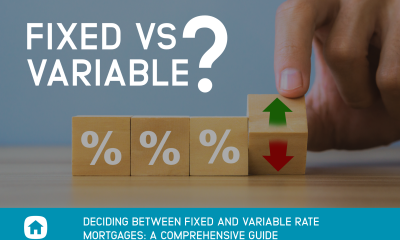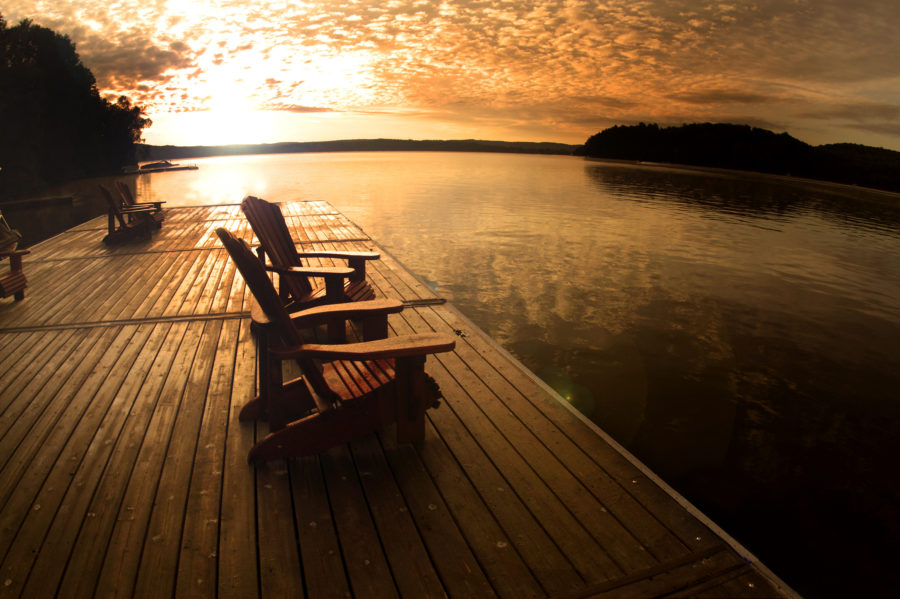(Special) – With the advent of spring many Canadians turn their thoughts toward spending time at the cottage.
Canadians have a traditional love affair with the cottage as a place to get away from the city, enjoy time with family and friends and even as a home for their retirement. Owning a piece of the countryside may sound inviting, but investing in a recreational property is a big step that should involve a lot of thought and preparation before you take the plunge.
Statistics show that an investment in recreational property generally has paid financial dividends over the last couple of years.
According to the 2018 Royal LePage recreational property report survey, the price of recreational property in Canada was expected to increase by 5.8 per cent to $467,764 compared to 2017. The 2017 report similarly predicted that prices and sales volumes increased by about seven per cent over the previous year to an aggregate national price of $439,000. The reports note that prices can vary widely across different regions of the country.
Deciding on whether or not to invest in a recreational property ultimately will come down to what your goals are. The LePage reports point toward retirement or a secondary home to raise the children as two of the main reasons why Canadians are flocking to get a piece of the country’s lakes, streams, seaside and mountains.
“Real estate generally is considered to be a good investment over the long term, but that may not always be the primary motivation for purchasing a property,” Patrick Fitzgerald, an adviser with Sun Life Financial in Ottawa, said in an interview. “People may want an asset that appreciates over time but it may also be more for lifestyle, fun or for family reasons. It’s important to first determine why you want to do it.”
There are a number of things people should take into consideration before deciding to purchase such as the location, distance from their main home, traffic, and the condition of the property. After the purchase, there are on-going expenses including property taxes, heat, hydro, insurance, maintenance, repairs, food, vacation toys such as boats and, of course, the cost of travelling to and from the cottage.
Vacation property insurance is not the same as insurance on your primary home. Cottage policies tend to be more expensive due to increased risk. Costs will depend on the location of the property and whether it is accessible all during the year.
Given the increasing value and interest in recreational properties, the family’s cabin by the water could very likely be a part of the family’s inheritance, which can bring with it a whole number of tax, ownership and succession issues.
“It’s one thing to look at a cottage today but further down the road it can give rise to new goals about transferring it to family members or selling it,” Fitzgerald says. “Either of these situations can trigger capital gains tax. It’s important to consider these long-term goals at the beginning.”
Many cottage owners want to hand the cottage down to their children or heirs. They should sit down and talk to their children and determine who wants it and who doesn’t, who can use it and who can’t, and who can afford it or can’t, because these issues will very much affect the planning on how the transition of the property is done.
Fitzgerald believes that if people are going to buy a cottage they should consult an adviser who can help them understand all the ramifications and options available and include it in their financial plan.
“Most people don’t even have a financial plan on paper,” Fitzgerald says. “They should get advice and include the cottage in their plan because there are a lot of cases of a cottage gone wrong. It’s really important that people know what they’re getting into before they buy to try and avoid unexpected surprises down the road.”
Talbot Boggs is a Toronto-based business communications professional who has worked with national news organizations, magazines and corporations in the finance, retail, manufacturing and other industrial sectors.
Copyright 2019 Talbot Boggs
Talbot Boggs , The Canadian Press

 Buying a Home5 years ago
Buying a Home5 years ago
 Credit6 years ago
Credit6 years ago
 Business4 years ago
Business4 years ago
 5 Mortgage Secrets7 years ago
5 Mortgage Secrets7 years ago
 Buying a Home6 years ago
Buying a Home6 years ago
 5 Mortgage Secrets6 years ago
5 Mortgage Secrets6 years ago
 News12 months ago
News12 months ago
 Business4 years ago
Business4 years ago





